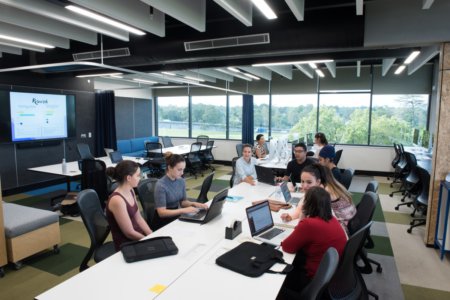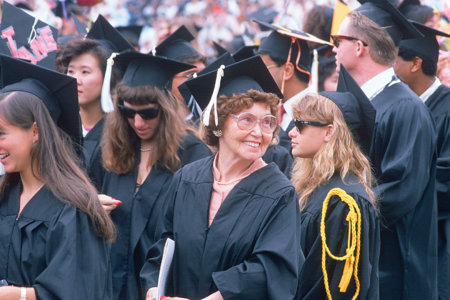
In 2016, the National Centre for Education Statistics reported that about 13% of students have been identified with a disability that requires special education services. Fortunately for these students, there are teachers that are uniquely trained to support their learning needs, ensuring education, behavioral, social and emotional success. These practices are the work of a special education teacher.
Poet Robert John Meehan, known as ‘The Voice of the American Teacher,” summed up the value of helping all children to be successful when he stated, “Every child has a different learning style and pace. Each child is unique, not only capable of learning but also capable of succeeding.”
These educators help young people who need extra support such as learners with mild to moderate learning difficulties, specific learning difficulties such as dyslexia, physical disabilities, hearing or visual impairment, emotional or behavioral problems, and more. Some of the ways they do so include:
- teaching national curriculum subjects in a special way with lesson plans and materials
- helping pupils to develop confidence, independence, and abilities; by marking and assessing work
- working with other professionals such as medical staff, speech and language therapists, and educational psychologists
- keeping parents and carers in the loop about the learner’s progress
- regularly attending training programmes such as workshops and educational seminars
- organising outings, social activities, and sporting events
The Bureau of Labour Statistics reports that the career outlook for special education teachers remains strong, offering job growth and above-average salaries. The demand keeps increasing due to the growing numbers of special needs students who require services, which means professionals in the field can more readily find positions nationwide.
BLS also reported in 2019 that the median annual salary for special education teachers at the kindergarten and elementary school levels was US$60,460, with the highest-paid 10% earning more than US$97,210. In that same year, median annual earnings for special education teachers at the secondary school level were slightly higher, at US$61,710. The top-paid 10% of these teachers made US$98,890 per year.
Below are the education and certification requirements to join a profession that does not just come with many benefits but makes an impact in the lives of children:
A special education bachelor’s degree
A bachelor’s degree in special education provides evidence-based teaching practices and hands-on training through a student teaching experience. The curriculum for the Education University of Hong Kong’s BA (Hons) in Special Education Programme includes types and characteristics of special needs, assessment and intervention approaches, the broader environmental, language, and social contexts, as well as issues related to social inclusion, empowerment, and quality of life of individuals with special needs.
When researching these programmes, prospective students should check a programme’s accreditation status and pathways to taking relevant state exams. In some states, only an accredited special education degree meets the requirements for a teaching license.
A specialisation
A bachelor’s degree in special education is often accompanied by a specialisation to build advanced skills in a certain area, such as elementary education, gifted and talented education, or autism spectrum disorders. The specialisation may require additional coursework or work experience, depending on the programme.
State certification
Graduates with a bachelor’s degree in special education who are interested in teaching at public schools must apply for state certification or licensure. During the certification process, candidates must provide documentation demonstrating their bachelor’s degree and student teaching experience. Most states also require candidates to pass specialised exams and a background check.
The right skills
Teachers for children with special needs need to have excellent communication skills so that they will be able to interact with students, parents, and their fellow educators. They also must be able to work with students in one-on-one and group settings, while understanding the abilities and needs of each and every child in their class. Most importantly, these teachers have to be encouraging, creative and flexible, motivational and inspirational.
A special education teaching position
Finding a teaching position is the final step in becoming a special education teacher. Licensed special education teachers can apply for jobs at public elementary and secondary schools. Most of these teachers work in public schools, but a small number also work in private schools or in residential facilities.










